Spinach is a very nutritious leafy green that many people consider to be a wonderful superfood.
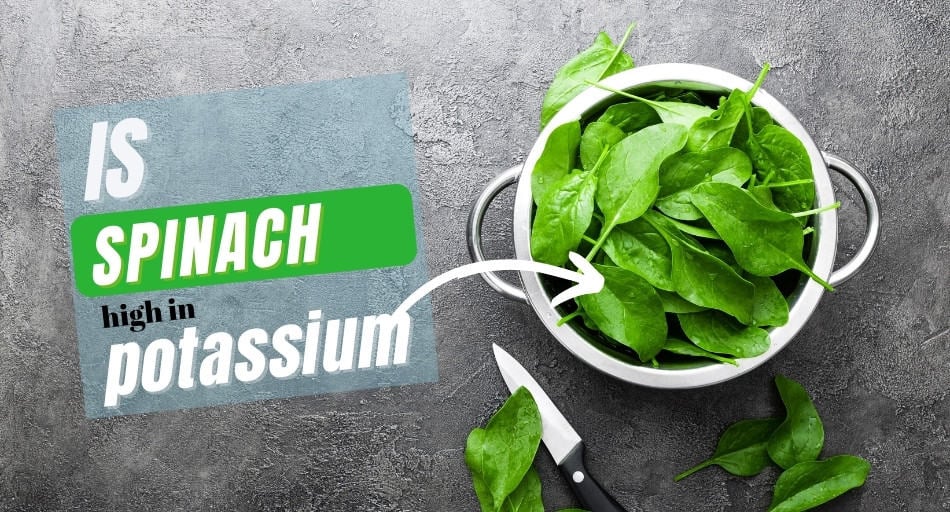
It can be eaten raw or cooked, and many people even add them to their morning smoothies. It’s rich in many vitamins and minerals, including potassium.
If you suffer from kidney issues, though, you should limit your consumption of this mineral.
So, can you add spinach to a low-potassium diet? Is spinach high in this mineral?
Table of Contents
Is Spinach High In Potassium?
Just like most leafy greens, spinach is an excellent source of potassium. Because of that, people who want to up their intake of this mineral should add it to their diets. But those prone to kidney stones and kidney disease might need to limit how much spinach they consume.
Generally, spinach is very healthy and nutritious, though, so small amounts of this leafy green are perfectly safe for everyone.
How much potassium is in spinach?
One cup of raw spinach contains 167 mg of potassium.
While it’s under the recommended intake to be considered low potassium (a food needs to contain less than 200 mg of potassium in a single serving to be low in this mineral), most people eat more than this serving in one sitting as raw spinach doesn’t weight a lot.
As a result, the potassium content can add up, which might be problematic for some people.
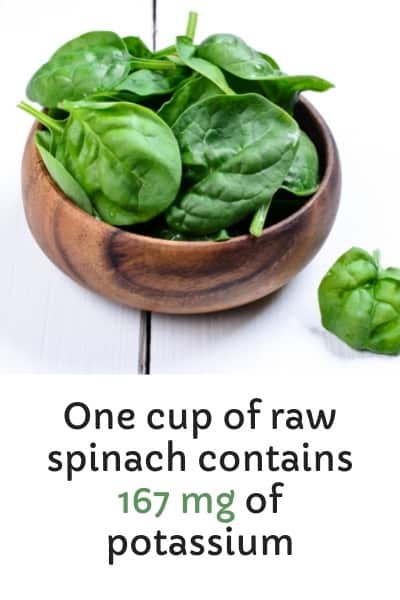
Half a cup of cooked spinach contains 420 mg of potassium. This is an impressive amount, so if you’re looking for foods that can help you increase how much potassium you consume, cooked spinach is one of the best choices.
On the other hand, those with kidney disease might want to stick to smaller servings of raw spinach to avoid taking in too much potassium from this veggie.
Is spinach healthy?
Spinach contains very few calories, but it’s loaded with nutrients. For example, a single serving provides you with way more than your entire daily need for vitamin K.
This micronutrient is incredibly important for blood clotting and bone metabolism. It’s also essential for regulating blood calcium levels. Vitamin K is fat-soluble.
So to ensure the most efficient absorption, make sure to eat vitamin K-rich foods with some source of healthy fats, like avocados, nuts, or fatty fish.
Spinach is also a great source of various plant compounds, including lutein. This compound help improve your eye health and prevent various eye issues, such as age-related macular degeneration.
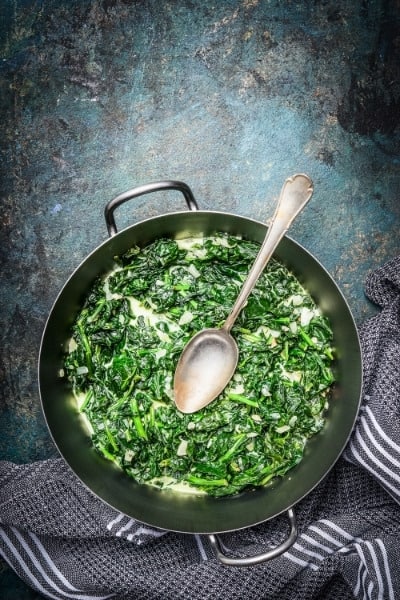
It’s important to get enough lutein from your diet, as your body can’t produce this compound on its own.
Because of that, adding spinach and other dark greens to your diet is essential.
Like other leafy greens, spinach is full of antioxidants. These compounds help flush out free radicals from your body, which are byproducts of metabolism and cause oxidative damage to your cells.
Antioxidants help prevent this oxidative damage and lower your risk of various chronic health conditions, such as diabetes and cancer. A diet containing plenty of antioxidant-rich foods can also prevent accelerated aging.
A single serving of cooked and raw spinach provides you with a lot of nitrates. These compounds help prevent high blood pressure and reduce your risk of various cardiovascular issues, such as heart attacks, heart disease, and strokes.
Spinach’s high potassium content also contributes to heart health and stable blood pressure levels, making this veggie a great food for a heart-healthy diet.
Can you take in too much potassium from spinach?
Just like most leafy greens, spinach is very rich in potassium. As a result, those with kidney disease or prone to kidney stones might want to limit their consumption of this vegetable.
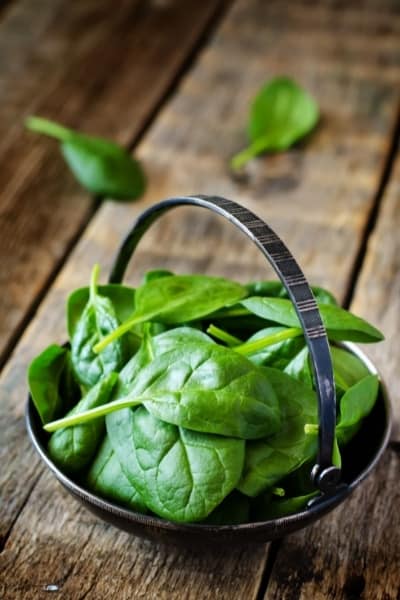
In addition, spinach contains oxalates, which further increase your risk of kidney stones. So, they might be harmful to a small group of people if not eaten in moderation.
All other people shouldn’t worry about taking in too much potassium from spinach, as your kidneys are very good at removing any excess of this mineral.
Is canned spinach high in potassium?
A half-cup serving of canned spinach contains 370 mg of potassium. Because of that, it’s considered a high-potassium food.
Canned spinach also tends to be much higher in sodium than fresh spinach. Because of that, consuming large amounts of it might cause high blood pressure and increase our risk of stroke.
Many people recommend rinsing canned spinach before preparing and eating it to remove excess salt to prevent those issues.
Is mustard spinach high in potassium?
One cup of cooked mustard spinach contains 513 mg of potassium, and one cup of raw mustard spinach has 673 mg of potassium.
Mustard spinach has larger leaves and a slightly different taste. It’s still incredibly nutritious and can make for a great addition to any healthy, balanced diet.
It can also be used as a replacement for other varieties of spinach or as a flavoring ingredient in many dishes without adding too many calories.
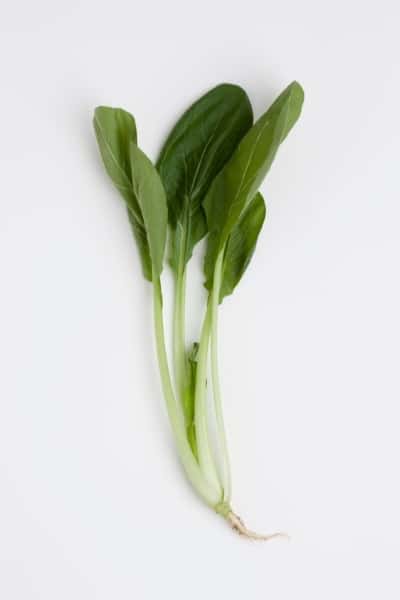
Is Malabar spinach high in potassium?
One cup of cooked Malabar spinach contains around 113 mg of potassium. This type of spinach is most commonly eaten in tropical Asia and Africa, but many European countries have also adapted this veggie.
It has small leaves, tastes like lemon and pepper, and can be a great substitute for true spinach in soups, curries, omelets, smoothies, and various other dishes.
Is New Zealand spinach high in potassium?
One cup of chopped raw New Zealand spinach contains 72.8 mg of potassium, whereas one cup of cooked leaves of this variety provides you with 184 mg of potassium.
This leafy green is also very nutritious and has a much more bitter taste than other spinach varieties, so most people prefer to eat it cooked and with some salt.
Conclusion
Spinach contains a good dose of potassium. So, if you want to include more potassium-rich foods in your diet, that’s definitely one to go for.
On the other hand, if you have to limit your intake of potassium due to a health condition, you might want to consume spinach in moderation to avoid taking in too much of this mineral.
